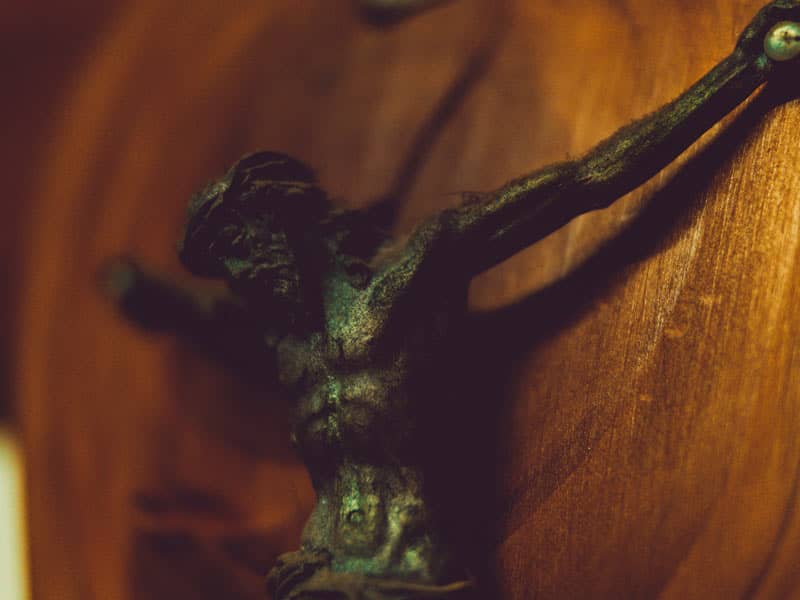Monday morning, the College of Cardinals gathered in St. Peter's Basilica for a Mass that has not been celebrated since 1978. Its official title is the Mass Pro Eligendo Papa--for electing a pope. Later in the afternoon, the princes of the church reassembled in the somewhat less well known but still magnificent Pauline Chapel, inside the Vatican's Apostolic Palace. From there they processed to the Sistine Chapel to get down to the business of choosing a successor to Pope John Paul II. On their way they intoned an ancient Latin hymn, Veni, Creator Spiritus: "Come, Holy Spirit." It is a text used during the most solemn moments of the church's rituals--for example, on the feast of Pentecost and at the ordination of priests and bishops.
The notion that the Holy Spirit could be part of what appears to be the most political of processes may strike some observers as bizarre. The election of a pope seems almost outrageously political: with its centuries-long history of intrigue and maneuverings, its legendary secrecy and dealmaking, papal conclaves have served as fodder for everything from trashy novels like Dan Brown's Angels and Demons to films like "The Shoes of the Fisherman." Last week, Italian newspapers featured breathless stories about a group of voters (at least 40, we were told) already cohering around Joseph Cardinal Ratzinger, as if the conclave were an American political convention and His Eminence were toting up electoral votes. In his book Conclave, John L. Allen, Jr., an experienced Vaticanologist, even identified three Vatican "parties," and placed the most likely papal candidates in the Reform, Border Patrol or Salt of the Earth parties.
Catholics believe, though, that even through the most political of machinations, the inspiration of God can still work. Unlike some fundamentalist Christian denominations that view God as essentially above or separated from the messiness of human life, Catholics believe deeply in a sacramental world, where God's presence can be felt not simply through the more obvious actions like prayer, the reading of Scripture and the works of charity, but in more mundane activities--even politics. Catholics also trust that the Spirit guides the church, though it is up to Catholics--cardinals and otherwise--to decide whether or not they want to listen. (Though I don't want to speak for the third person of the Trinity, it's a fair bet that there were more than a few people in the Archdiocese of Boston who weren't especially attentive to the Spirit during the sexual abuse crisis.)
Exactly where you think the Holy Spirit is working depends on your own beliefs. Those who favor a particular decision in the church often attribute the outcome to the miraculous activity of the Holy Spirit; those who are opposed to it declare that the decision-makers weren't listening. Clearly millions of Catholics saw the Holy Spirit influencing the last papal election. Look how the Spirit elected the right man for the right time, they say. Who else could have helped to bring down communism but Karol Wojtyla? On the other hand, for those frustrated by Vatican pronouncements on such things as women's ordination, married clergy and homosexuality, there is the old joke about the three persons of the Trinity (Father, Son and Holy Spirit) deciding where to vacation this year. In the end, they decide to go to Rome because the Spirit hasn't been there in a long time.
Catholics of every theological stripe will be praying for their church in an intense way during the conclave. Many of the faithful have been urged by their pastors to attend daily Masses, and some are even fasting for the success of the work of the cardinals gathered in Rome. The papacy of John Paul II was remarkable in many ways, but it left many issues unsettled: the dramatic shortfall in priestly vocations, the role of women and the laity, the lack of consultation with local bishops' conferences, the role of ecumenical and interfaith dialogue, the ongoing response to clerical abuse scandals, as well as lingering doubts among many of the faithful on topics of sexual morality. The man elected to be the next Vicar of Christ, the spiritual leader of over one billion Catholics, will face a nearly impossible job, and the assembled cardinals know this better than almost anyone.
But now that the doors of the Sistine Chapel are locked, and the cardinals have finally begun their ballotting, they are sure to believe that along with them is an unseen participant--the Holy Spirit. Catholics worldwide are praying that the cardinals listen carefully to what she has to say.
2016-06-30
2016-06-30
Beliefnet Editor
more from beliefnet and our partners

